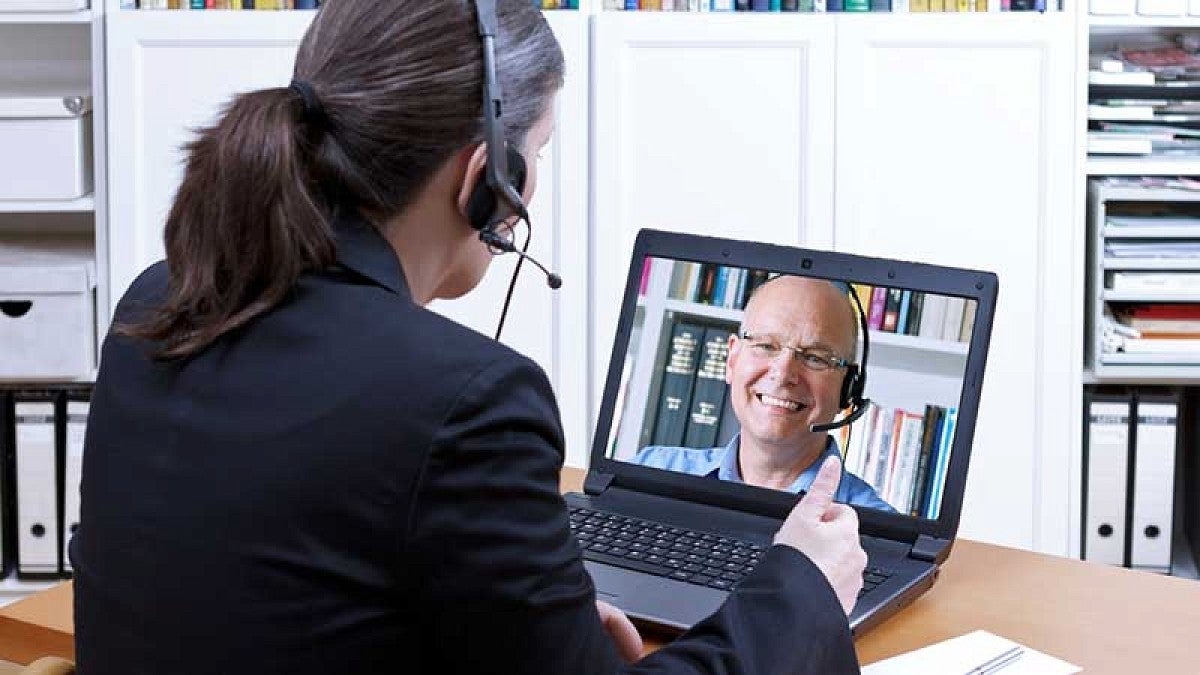A term of remote learning has added new obstacles for students already facing barriers to regular classroom learning, but the University of Oregon has hurried to add new services and assistance to ensure all Ducks succeed.
For some, online classes mean more exposure to screens that can trigger seizures and migraines. Lectures can be difficult to hear accurately. And the anticipated challenges around attention and motivation issues for students learning remotely are present, too.
UO students who qualify for help have always relied on the Accessible Education Center for accommodations, such as extended testing time, more flexible class policies, notetaking or in-person assistance to aid their learning styles. This term, staff members are working on new ways to ensure all students get a quality education.
“We are actively working with students and instructors to address both new and anticipated barriers in this remote environment,” said Hilary Gerdes, center director and assistant vice provost for accessibility for the Division of Undergraduate Education and Student Success.
A workshop series offering coping strategies geared towards all students is in progress, and the center is also accepting nominations for its third annual Faculty Excellence in Universal Design award, which recognizes instructors who have adapted their curriculum to improve flexibility and accessibility.
“For some students, the remote setting has provided a positive change in areas such as instructor flexibility, access to recorded lectures, alternative assessments to learning, and increased understanding about very real and challenging individual student situations,” Gerdes said.
The universal design award is a timely way to celebrate the best of those adaptations. Nominations for the $1,000 award from the Division of Undergraduate Education and Student Success, which oversees the center, are being accepted through June 14 on the Accessible Education Center website.
Instructional approach makes a huge difference for students like senior Hajar Albattah, a psychology major who is visually impaired. The center acts as an intermediary with faculty members as needed to accommodate her.
“If there is a misunderstanding from one of the professors, the AEC contacts them immediately and clears things with them,” Albattah said.
She typically receives an in-person assistant for reading course materials, slide decks and websites that aren’t accessibly designed. For the current term, the center has offered her the same support via screen share. It’s not the same, Albattah admits, but it’s bridging the gap.
And the process of getting that help has been smooth, she said.
“Contacting the AEC during this online learning is the simplest among all university departments that I tried to reach,” Albattah said.
Another student, junior art major and psychology student Hannah Crazyhawk, said remote learning is a relief. A rare, chronic pain condition makes it difficult for her to attend class in person, so she’s accessing her education like never before during remote instruction.
“I cannot express how much this accessibility means to me,” she said. “Before the change to remote education, I would never have the chance to hear and absorb lecture content because of my health.”
Senior Mapuana Maka is preparing to graduate with a computer science degree. For the last year, she’s been president of the UO Cybersecurity Club, and she credits her academic and extracurricular successes to the help she received from initial contact with the center. That prompted her to seek medical care and, ultimately, has helped her realize her potential.
“I tell everyone that the AEC really is here for all of us, even if you’re doing well in your courses,” Maka said. “I’ve gone to them whether I needed help with my accommodations or when I felt like I needed an ally who would understand.”
—By Anna Glavash, University Communications


